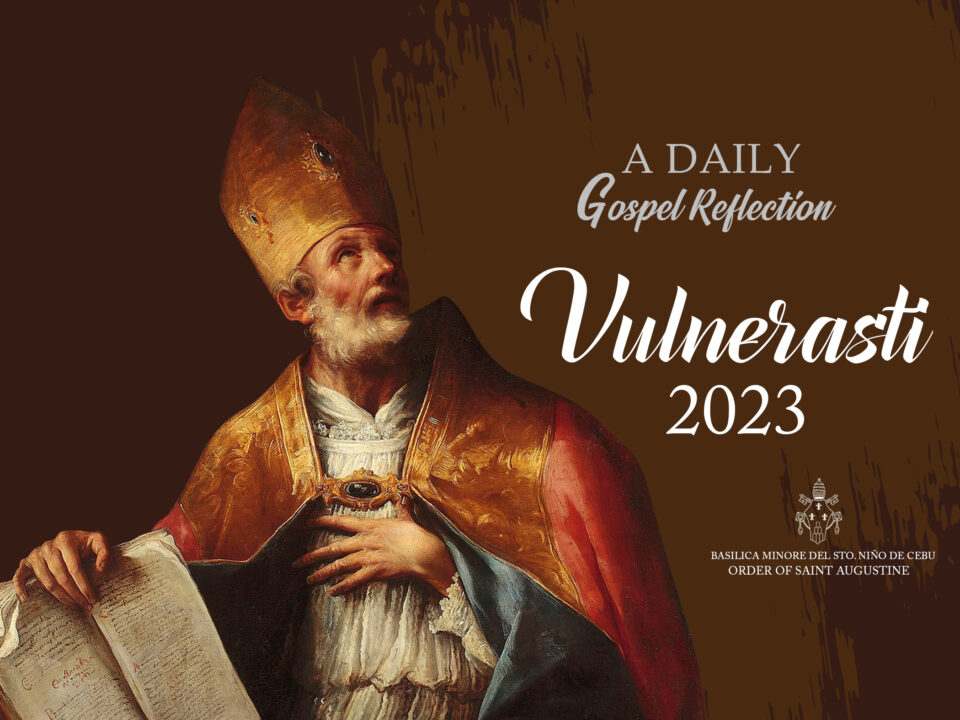Twenty-eighth Sunday in Ordinary Time

Today’s Reflection
Gospel: Lk 17:11-19
October 9, 2022 | Sunday
On the way to Jerusalem, Jesus passed through Samaria and Galilee, and as he entered a village, ten lepers came to meet him. Keeping their distance, they called to him, “Jesus, Master, have pity on us!” Jesus said to them, “Go, and show yourselves to the priests.” Then, as they went on their way, they found they were cured. One of them, as soon as he saw that he was cleansed, turned back, praising God in a loud voice; and throwing himself on his face before Jesus, he gave him thanks. This man was a Samaritan.
Then Jesus asked him, “Were not all ten healed? Where are the other nine? Did none of them decide to return and give praise to God, but this foreigner?” And Jesus said to him, “Stand up and go your way; your faith has saved you.”
Today’s Reflection:
“Ang hindi marunong lumingon sa pinangalingan ay hindi makakarating sa paroroonan.” (One who does not know how to look back at where he came from will never get to his destination.)
The wisdom contained in the aphorism above is somehow illustrated in the reactions of a Syrian named Naaman in the First Reading and an anonymous Samaritan in the Gospel after being healed of leprosy. It must be noted that prior to getting healed, Naaman and the Samaritan were virtually dead men walking. They were not simply marginalized. They were in fact doubly ostracized, namely: for being foreigners with deep-seated conflict with the Jewish people and for having highly-contagious and stomach-churning skin lesions. The moment of healing was to them an occasion of great rejoicing. It signals the end of their banishment. It heralds their new lease of life and return to their respective communities.
Now, their reactions: The newly healed Naaman does not simply return to Elisha to say “thank you”. His gratitude comes with an enduring resolve to worship the Lord as intimated in his request to bring with him two mule-load of Israel’s soil. This is to serve as his constant reminder of this commitment. Likewise, the cleansed Samaritan returns and shouts out loud his thanksgiving to God. Feeling so undeserving of the second lease on life, he prostrates himself before the Lord.
The reactions of these healed men to the Lord’s gift of healing are by all means indicative of genuine thankfulness. These responses comprise a eucharistic act. Herein we must note that the Greek word for “thankfulness” is “eucharistia” (εὐχαριστία) whose cognate “chara” (χάρa) means “joy”.
Perhaps it is on account of the fact that they are truly grateful or joyful that both Naaman and the Samaritan are called to bear witness to the goodness of the Lord. Immediately after the First Reading, it is reported that the prophet Elisha tells Naaman to go in peace (2 Kgs 5:19b). This intimates that Naaman—still welling up with joy—is to proclaim the Lord’s graciousness to his fellow Syrians at the least.
Similar is the case with the cleansed Samaritan. Jesus instructs him to “get up and go” for his faith has saved him (Lk 17:19). The combination of the verbs “get up” (ἀνίστημι) and “go” (πορεύομαι) in Luke-Acts always entails a call to mission. For example, immediately after having pronounced her fiat or “yes” to the message of an angel, Mary is said to have gotten up and gone to console the pregnant elderly named Elizabeth (Lk 1:39). Moreover, the risen Lord reportedly instructs Paul to “get up and go” to Damascus where he shall know the Lord’s instructions as regards to the mission he is to do (Acts 22:20).
Mary and Paul as well as the cleansed Naaman and the Samaritan are undoubtedly filled with joy or grace of the Lord. Their respective missions can only be fulfilled by those who are truly grateful and joyful. Since no less than prophet Elisha and Jesus are the ones telling them to get up and go, they can certainly reach their respective goals or destinations.
May we draw inspiration from them! First and foremost, we must look back to where we came from, that is, we have to genuinely express our gratefulness to those who have helped us become better persons. When our acts of “looking back” or “returning to give thanks” will have become second nature to us, we shall become less and less bitter and more and more joyful. All being well, the Lord himself shall instruct us to “get up and go”. Hopefully, we too will be able to fulfill our respective goals or missions in life. Hopefully, we shall reach our common and ultimate goal, namely: to be able to arrive at where we came from—the Lord himself. /Vulnerasti, 2022



